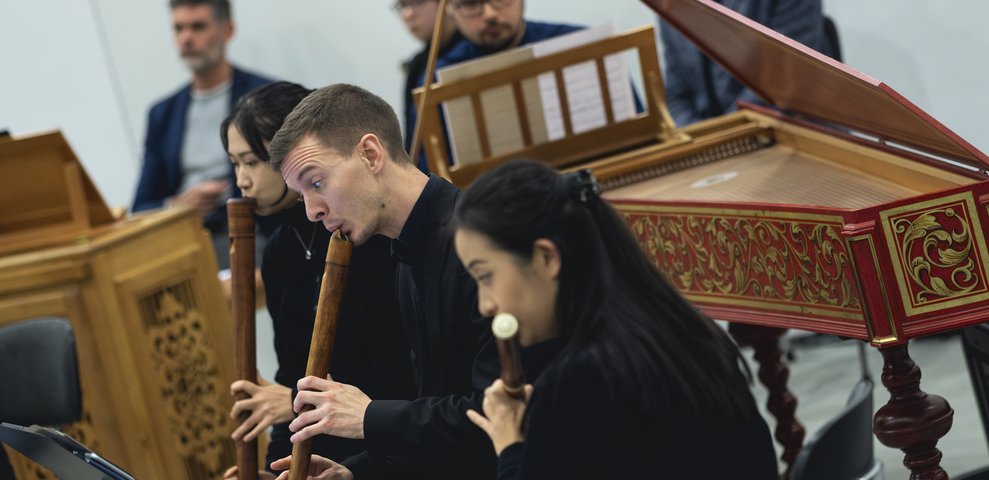Early Music (M.M., KA extended)

The degree programme for an “extended” Master invites at applicants who have completed a degree (Bachelor’s, Master’s or comparable degree) without specialising in Early Music or historically informed performance practice. In a special supplementary module, the curriculum therefore offers a range of subjects tailored to the individual entry requirements of each student, in which practical, theoretical and scientific basic knowledge of the music of earlier eras can be acquired. Participation in the numerous specialised ensembles for early music at the University of the Arts is a special feature of the course, which prepares students for later professional activities in orchestras and ensembles. Regular projects with internationally renowned guest lecturers round complete the programme.
Lecturers
The lecturers in the field of music are renowned musicians who perform in concert halls around the world. A close and co-operative exchange between students and teachers is of central importance in the field of music.
Numbers, Dates, Facts
- Parameters of studies Full-time, regular period of studies of four semesters
- Teaching languages German
- Volume of studies 120 ECTS-points
- Semester fee EUR 335,50
Course of study
Here you will find the course plans and modular guides.
Advice on studies and contact persons
Department 1, office for students, are ready to provide information on studies and applying.
Contact General advice on studies
- Email dezernat1@hfk-bremen.de
- Phone +49 421 9595-1113
Study-related specialist advice from the dean of studies
The area of responsibility of the dean of studies includes questions about studying and teaching. In accordance with the examination and study regulations, the dean of studies ensures that the individual courses of study are progressed appropriately, decides on measures to ensure that the necessary courses are offered with adequate supervision and ensures that student interests are appropriately taken into account. The dean of studies supports you throughout your studies and coordinates subject-specific advice from lecturers. You can also contact the dean of studies to arrange further advice and if you have personal concerns or difficulties.
Application
All the important information on application deadlines, requirements and admission criteria are available under applying for the study programme Early Music (M.M., KA extended).
